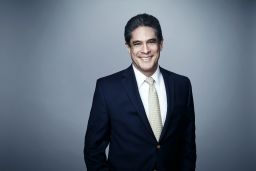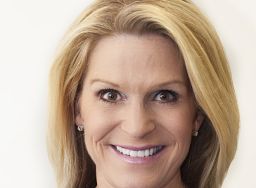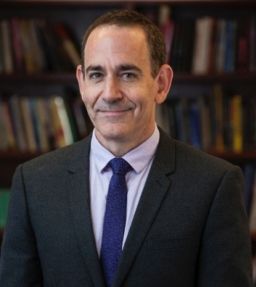CNN commentators and guest analysts offer their take on the 2016 presidential election’s outcome. The views expressed are their own.
Errol Louis: Now, the real pivot?

After months of riding slash-and-burn politics to victory, Donald Trump claimed the ultimate political prize – and immediately struck an unexpected note of grace and reconciliation.
Let’s hope it was genuine.
“It is time for us to come together as one united people,” Trump told a jubilant crowd at the Hilton, just days after leading followers in chants of “lock her up” – a vow to investigate and jail his opponent, Hillary Clinton.
“We will seek common ground, not hostility,” he said, weeks after vowing to sue every one of the 10 women who have alleged that Trump grabbed, groped or kissed them against their will.
And as for Trump’s many political opponents, the president-elect struck a rare note of humility. “I’m reaching out to you for your guidance and your help,” he said.
Could this be the long-awaited and oft-promised pivot Trump’s supporters said would happen? Or are we in for more of the tone of mockery, insults and bitter backlash that Trump aimed at so many during the campaign?
In this, as in so much else about this remarkable campaign, the only thing we know for sure is that America is now in uncharted territory.
Errol Louis is the host of “Inside City Hall,” a nightly political show on NY1, a New York all-news channel.
Tara Setmayer: Republicans ‘won.’ But at what cost?

The Republican nominee just pulled off one of the greatest upsets in political history to take back the White House. He managed to flip Rust Belt blue states red and in doing so, helped the GOP retain its majorities in Congress. As a Republican, I should be overjoyed. But as an American first, my heart is heavy. Why? Because that nominee, now President-elect, is Donald Trump.
Yes, we “won,” but at what cost? Was it worth overlooking bigotry, integrity, mistreatment of women, dishonesty, demagoguery and common decency to sell our political souls for the prospect of a few policy victories?
Both candidates suffered from considerable character deficits. But the American people, fed up with politics as usual, threw caution to the wind and chose change. Was that choice driven more by validation of Trump or a repudiation of Clinton? How do we explain that decision to our children?
Hillary Clinton deserved to lose. She was a terrible candidate saddled by legitimate questions of honesty, trustworthiness and political corruption brought on by her own poor judgment.
As a result, Trump was able to execute the greatest con in US history. His self-indulgent reality show just became real life. He can no longer hide behind his gold plated veneer of “telling it like it is.” He must transition from platitudes to policy implementation. In other words, he must govern.
As we pick up the pieces, we need to ask ourselves who we’ve become as a country. How do we heal the divide? Can Donald Trump rise to the occasion and lead this great nation? I still have my reservations, but for the sake of our constitutional republic, I hope he can.
Tara Setmayer is former communications director for Rep. Dana Rohrabacher, R-California, and a CNN political commentator. Follow her on Twitter @tarasetmayer.
Raul Reyes: A dark day for US Latinos

For Latinos, this has been the most consequential presidential race in history. From day one of his campaign, when he denigrated Mexicans and immigrants, Donald Trump has made this election, in part, a referendum on our community. Consider all the times that Latinos have figured into the campaigns, from “bad hombres” to Miss Universe to “taco trucks on every corner.” We now know that a huge number of American voters are untroubled enough by his xenophobia and bigotry that they were willing to hand the keys to the White House to a reality TV star.
What has been truly lost in this personality-driven race is a serious discussion of major issues. Too often, the race devolved into personal insults and attacks. The media was complicit in this, too often setting aside the astonishing possibility of Russia meddling in our electoral process to breathlessly cover the latest Trump rally.
The surge in Latino early voting was apparently not enough to fend off the visceral appeal of Trump’s promises of change. Latinos can take pride in the uptick in our turnout, from Nevada to Florida, and in the election of the first Latina to the U.S. Senate, Catherine Cortez Masto.
But undeniably, this is a dark day for US Latinos. Everything from the Affordable Care Act, which has enabled millions of Latinos to obtain health coverage, to marriage equality, which is supported by a majority of Latinos, is now in jeopardy. Our undocumented friends, family, and neighbors are living with fear – as are millions of Latinos rightly concerned about the possible rollback of our civil rights by Republicans controlling both the executive and the legislative branch.
One of the broader questions surrounding this presidential race, often posed by the Clinton campaign, was “What kind of country do we want to be?” Sadly, that question has been answered.
Raul A. Reyes, an attorney and member of USA Today’s board of contributors, writes frequently for CNN Opinion. Follow him on Twitter @RaulAReyes.
Alice Stewart: Trump threw out presidential playbook

State by state, voters in this election went to the polls and decided they wanted to do everything they could to “Make America Great Again.”
From the escalator entrance at his announcement to the helicopter rides at the Iowa State Fair to the WWE-style entrance at the Republican National Convention – Donald Trump threw away the presidential playbook and won his way to the White House.
Unbound by the niceties of GOP primaries past, Trump created a movement, gave voice to those who felt unheard – like a tree falling in the forest – and awoke the sleeping giant of anti-establishment voters. His brash style won over hearts and minds of Republican primary voters.
Fundamentally, the Republican Party has been changed. The Republican National Committee is collateral damage and it will be President Trump’s to rebuild. Another question now is – can Speaker Paul Ryan survive?
Alice Stewart is a CNN Political Commentator, former Communications Director for Ted Cruz for President, and Republican Strategist.
Roxanne Jones: ‘Twitter is the true Voice of America’

The biggest take away from President-elect Donald J. Trump’s shocking win: Twitter is the true Voice of America. And that voice is raw, rough, raging against Washington and very, very white. Every high-priced pollster who forecast Hillary Clinton would win easily should return their paychecks. America is deeply divided and Twitter predicted it first – for free.
Trump led the charge of the angry, working-class white man – and quite a few white women – and his troops followed in force, giving him a historic victory. The former TV reality star stormed across the nation drawing in millions of new voters, pushing his us-against-them rhetoric, denigrating women, immigrants, Mexicans, Muslims and “the blacks.” Didn’t matter. It was a message millions of people were waiting to hear.
It has always been difficult to dissect the source of the hatred and mistrust aimed at Hillary Clinton. Is it sexism, racism, her hawkish foreign policies, or her too-liberal social policies? Is Clinton’s loss really about emails? Or, could it simply be that America is just not ready to put a woman in the White House? Many believe Clinton was a victim of white backlash against America’s first black president. No telling. But now, undoubtedly, there will be a rush to try to tarnish President Obama’s legacy, even though he has enjoyed the highest approval ratings of any recent outgoing president.
One thing is undeniable: Clinton never passionately connected with voters. Not with women, Latinos, Millennials, or blacks, many of whom never trusted her after she supported President Bill Clinton’s harsh drug laws that led to the mass incarceration of millions of blacks and Latinos. As one #BlackLivesMatter activist in Philadelphia, Asa Khalif, told me: “I voted for Clinton, but I was extremely saddened that Black America only had two choices, her and a racist bigot. Very dark days ahead for all of us.”
So here we stand, an angry, divided, fearful Republic. And it will up to Trump get us back together again of he is to truly win America’s heart and soul.
Roxanne Jones, a founding editor of ESPN Magazine and former vice president at ESPN, has worked as a producer and as a reporter at the New York Daily News and The Philadelphia Inquirer. She was named a 2010 Woman of the Year by Women in Sports and Events, is a co-author of “Say It Loud: An Illustrated History of the Black Athlete,” and CEO of the Push Marketing Group.
Brett Talley: Trump gave the forgotten a voice

This election was for the forgotten among the American people. People who have been ignored, walked upon, told that their concerns don’t matter. They believe in America, but America hasn’t believed in them. When Donald Trump came on the scene, for the first time, they had a voice.
Did it help that his opponent is one of the worst candidates in American history? Of course, but don’t discount his message. It was his message that won, his message that broke through, his message that brought thousands of Americans who have never supported a Republican into his camp.
Now the work begins. Republicans must hold him accountable. They must ensure that the promises he made are kept.
But that’s for tomorrow. For today, the voiceless have spoken, and they were heard from one side of the country to the other, and in every corner of the globe.
Brett J. Talley is a lawyer, author, one-time writer for Mitt Romney’s 2012 presidential campaign and former speechwriter for Sen. Rob Portman. He is deputy solicitor general at the office of Alabama’s attorney general.
Lanhee Chen: Dismantling of core parts of Obama agenda?

The historic victory for Donald Trump and congressional Republicans may lead to even more history being made in 2017 – the dismantling of many of the core parts of the Obama agenda. While the temptation will be for analysts to linger on the improbability of tonight’s outcome, the reality is that a presidential transition and new Congress await.
A top priority for President-elect Trump should be the repeal of Obamacare and its replacement with market-oriented, cost-lowering reforms. The health law was a central issue in the stretch run of the campaign and Republicans finally have an opportunity to accomplish what they’ve been unable to for the last six years.
There are, of course, other important priorities – the naming of a constitutional conservative to take the late Justice Antonin Scalia’s place on the Supreme Court and growth-boosting tax and regulatory reform for starters. But few things would do more to signal to all Americans (and to reassure some jittery Republicans) that President-elect Trump is serious about reform than taking immediate action on Obamacare.
Lanhee J. Chen is a CNN political commentator and the David and Diane Steffy Research Fellow at the Hoover Institution at Stanford University. He was the policy director on the Romney-Ryan 2012 campaign.
Haroon Moghul: ‘It will not be easy’

“What America has done to Iraq,” the old man predicted, referencing the chaos unleashed by our invasion, “will be done to America.” I met him about three years ago on a trip to Pakistan. He meant no schadenfreude. He was actually just afraid. While I was confused. I only understood his meaning when, on another trip to Pakistan, another middle-aged man just like him said, “America is so powerful, no enemy can destroy it. Only America can ruin America.”
Had Clinton won, she would have had simply the White House and maybe, just maybe, the Senate. She would have faced impossible gridlock. I was never very reassured when people told me “the system” would restrain Donald Trump if he won. Trump is a force of nature. He destroys all in his path. He bent the GOP to his will (to power). And now Trump handed the party that so inconsistently but clearly opposed him the keys to power.
They know, and he knows, that they will have to go out of their way to prove their loyalty to him.
I would hope Trump governs responsibly, maturely and reasonably. But I am under no illusions. Some thirteen years ago, we went abroad in search of monsters to destroy. For every action there is an equal and opposite reaction. But we are not helpless to respond, nor even helpless. A majority of Americans voted for Hillary Clinton, but the system the Founding Fathers established to keep a strongman out of office has instead given him that office.
The task before us is to first survive this onslaught.
And then to turn it back, all of us together, black, white, brown, Christian and atheist, Muslim and Jewish, richer and poorer, liberal and conservative. It will not be easy. It will not be pretty. It will not be for the fainthearted. We must make America great again.
Haroon Moghul is a Senior Fellow and Director of Development at the Center for Global Policy. His next book, How to Be a Muslim, will be out in 2017.
Jeff Yang: Nothing prepared us for this

Nothing prepared us for this outcome – a victory by Trump that seems to have been the antithesis of what every poll and pundit predicted, save for a handful of outliers who were dismissed as partisan fantasists. (Bill Mitchell was right after all.)
As recently as hours before early returns began to deal shuddering blows to overconfident Democrats, insiders were still predicting blowout electoral victory for Clinton.
Views on Election 2016
Yet at the returns-watching event I organized tonight, we could only watch with our mouths open as states no one had credibly predicted for Trump turned red.
Talking heads instantly began yammering about white economic anxiety, about the feeling in the Midwest that the recovery had left them behind. But even states like Iowa that have had solid fiscal bouncebacks under Obama – and voted for him twice – went for Trump.
And in these states, the issues that voters said were most important in making their presidential selection were immigration and terrorism.
The fact that polls failed to pick up the breadth of Trump’s support is even more evidence of an uncomfortable truth: White people in this country fear and resent the browning of America, and a demagogue whose central platform plank was a promise to turn back time to an era before a black president, before the boom of immigration, before civil rights, maybe even before Emancipation, appealed to them in ways they refused to publicly admit.
And now America faces four years under Trump, with a Republican House and Senate, and at least one, possibly three Supreme Court vacancies to fill. Trump owns the GOP, and can take it whatever direction he chooses. Emboldened racists will target people of color; sexual abusers have been given tacit permission to predate at will. Obamacare is threatened, perhaps fatally. So are marriage equality and Roe v. Wade.
But it is no longer time to mourn, but to organize. The groups that will suffer most under Trump have always had to be stronger than the storm, and though they have been bound, they will not be broken.
Jeff Yang is a columnist for The Wall Street Journal and a frequent contributor to radio shows including Public Radio International’s “The Takeaway” and WNYC’s “The Brian Lehrer Show.” He is the co-author of “I Am Jackie Chan: My Life in Action” and editor of the graphic novel anthologies “Secret Identities” and “Shattered.”
Buck Sexton: An astonishing turn of events

Donald Trump’s presidential win is utterly stunning. For weeks leading up to the actual casting of ballots, major media outlets were saying the election was over and Hillary Clinton would coast into the Oval Office. Most polls said that Clinton had a comfortable lead. Revered journalists felt free to treat Trump with utter disdain, and popular culture constantly vilified the Republican candidate as a hateful bigot, misogynist, and racist.
Then, on election night, Trump went out and crushed Hillary Clinton.
This is an astonishing turn of events. A candidate who was ridiculed for months as nothing more than a reality TV star with a Twitter account defeated the undisputed dynastic heir of the Democratic Party. Mrs. Clinton was flush with more cash than any previous presidential aspirant, and a mainstream media that was willing to act as virtual campaign surrogates for her. Yet Trump the reviled outsider pushed aside the ultimate insider. He won, convincingly, despite all the disbelief and promises that it could never happen.
For Democrats, it’s all deeply disconcerting. There will be plenty of explanations and recriminations, most of which will rely upon taking a dimmer view of the American electorate. It is very unlikely the Democratic Party elites will recognize that their snide attitudes towards everyday Americans, along with their maniacal devotion to multiculturalism, finally boiled over in the minds of a majority of Americans. Progressives will take all the wrong lessons from this, and thus the stakes in the culture war will only get higher.
For Republicans, on the other hand, this is an across-the-board triumph that creates tremendous momentum for 2017. With a GOP-controlled House and Senate, the Republican Party has a clear mandate, and mission, courtesy of Donald Trump, the man at the top of the ticket: to make America great again.
For the sake of all Americans, I hope they are successful.
Buck Sexton is a political commentator for CNN and host of “The Buck Sexton Show” on TheBlaze. He was previously a CIA counterterrorism analyst. He endorsed Donald Trump for the presidency.
Julian Zelizer: A new Republican party

This is one of the most stunning upsets in American presidential history. Very few people saw this coming – his candidacy, his campaign, and his victory.
The Republican Party had changed in pretty dramatic ways over the past decade and many of the experts missed it. Indeed, many Republicans missed it as well. The tea party had been the first indication that the Republican Party had moved in a more rightward, rambunctious, smash-mouth and reactionary direction. Donald Trump understood this, and he crafted a campaign around this new GOP. The question now is, what happens when he moves into the challenge of governance?
Julian Zelizer is a professor of history and public affairs at Princeton University and a New America fellow. He is the author of “Jimmy Carter” and “The Fierce Urgency of Now: Lyndon Johnson, Congress, and the Battle for the Great Society.”
Nayyera Haq: ‘Mr. Trump, please rise above the rhetoric you stoked’
In his acceptance speech, President-elect Trump pledged to be “President for all Americans” and asked for people like me, who did not support his campaign, for our “guidance and help so we can work together and unify our great country.”
As the daughter of hard-working immigrants, the wife of a black man, and the soon-to-be-mother of a mixed-race child, I accept the next President’s request at face value and respond with this: Mr. Trump, please rise above the rhetoric you stoked in the campaign and recognize the worries of minorities in the United States.
Though enough people Googled “immigration to Canada” to crash the website last night, I have no plans to move out of the country. Despite what some may say based on my religion or color of my skin, the United States is my home. I will raise my soon-to-arrive newborn as a proud American who believes in the ideals that we are all created equal and endowed with the unalienable rights of life, liberty, and the pursuit of happiness.
Based on campaign rhetoric, I would have to pursue my unalienable rights from an internment camp (at worst) or while being banned from plane travel (at best); with my husband being stopped-and-frisked while I worry about him being shot by police; or with my private parts up for grabs while I struggle to break gender barriers at work. For my family, this is what was at stake with the Presidential election – not a set of esoteric policies, but a cultural and social direction that would determine our daily life routines and very sense of being.
I have no doubt a similar anxiety of an upended life, with different details, motivated many Trump voters. My Trump-voting friends from my hometown of Staten Island admitted that “Crooked Hillary” felt like more of a threat to them than the theoretical deportation of their friends. While the disconnect between our perceptions of harm still astounds me, there is clearly more for me to understand about the desires and fears of people who support a Trump presidency. As part of the call for unity, I pledge to also rise above anger and reactionary rhetoric to help fix the root of the problem – finding ways to step out of the segregated bubbles of experience that have led to the disconnect and lack of empathy among fellow Americans in the first place.
Nayyera Haq is a former White House Senior Director and State Department spokesperson in the Obama administration, Nayyera is a regular commentator on politics and current affairs.
Frida Ghitis: Will we recognize America?

The most dispiriting, bizarre election in modern American history concluded with a shocking outcome. The slow-motion realization that Donald Trump is becoming the next President of the United States left much of the country dumbfounded, American allies deeply worried, and America’s enemies no doubt in a celebratory mood. At the Kremlin, they may well have had champagne with their Wednesday morning breakfast.
The big question now is what kind of a president Donald Trump will be. As a candidate, he inspired millions to support him, even if large majorities of Americans said they believe he has the wrong temperament to be president. His candidacy also inspired a surge in ugly expressions of hatred, as racists, anti-Semites, xenophobes and homophobes felt emboldened to flex their muscles.
If that’s what a Trump candidacy wrought, what will a Trump presidency bring? Will we recognize this country four years from now?
Trump won’t just be president. He will lead a party that will control all the branches of government, making it possible for him to move forward with his plans with little effective resistance.
For the sake of the country and the world, let us hope that his more outrageous statements were only an act, only political theater. If what we saw was real, which is more likely, let’s hope for a miracle, for a conversion on the road to Pennsylvania Avenue.
We can only hope that the magnitude of what has occurred will produce a change in the man, removing his most dangerous tendencies, disappointing his cheerleaders in Moscow, Damascus, and other capitals where regimes view America as the enemy and a thriving United States as a danger to be thwarted.
Let’s hope Trump finds a way to embrace the best of America, which, during the campaign he seemed to so easily disdain; values such as tolerance of different ideas, backgrounds and beliefs; respect for America’s freedom of the press and independence of the judiciary.
The odds of a miraculous transformation seem minuscule. The country, Americans, will have to be on their guard. If this election was a test of American democracy, the Trump presidency will be an even tougher one.
Frida Ghitis is a world affairs columnist for The Miami Herald and World Politics Review, and a former CNN producer and correspondent. Follow her @FridaGhitis.
Ruth Ben-Ghiat:

Every American presidential election is a referendum on the state of the nation. This one has also been a showdown between candidates so different that the nation in question seemed to be two separate entities. One looks back to a “better time” for a white majority constituency now threatened by demographic change and immigration. “I alone can fix it,” says Donald Trump, this nation’s savior. The other is oriented to the future and sees increased diversity as a source of strength rather than fear.
Today this former nation sent a message to the political establishment – and the nation’s nonwhite populations – by electing Donald Trump. Instead of 30 years of leadership, we have a political neophyte who saw a gap in the political marketplace and sold himself as a racist who would avenge eight years of an African-American in the Oval Office. Instead of a former secretary of state, we have a man who knows little about foreign relations. Instead of a commander in chief, we have a man who insults our troops past and present, and a man so impulsive his campaign had to take his phone away from him to stop his destructive tweeting, as though he were a child.
I feel great sadness and trepidation for America tonight. We are better than this. Our task as citizens will be to let Donald Trump know it, in the strongest possible terms.
Ruth Ben-Ghiat is a professor of history and Italian studies at New York University. Her latest book is “Italian Fascism’s Empire Cinema.”
Tim Naftali: Trump a blank slate on foreign policy, security

The American people have spoken. In Electoral College terms, this wasn’t a cliffhanger. Hillary Clinton’s slender margin in Virginia was the first sound from that canary in the mineshaft, which tweeted louder and louder as results from Pennsylvania and the Upper Midwest came in. Just as many Americans cautioned Trump supporters to be prepared to accept the result when the mythical “blue wall” seemed real, now the half of America that did not vote for him must do so, for the sake of our venerable system of government. It is a constitutional compact, in return for which Donald J. Trump will have to respect his part of the bargain when he takes the oath of office.
The results of this election are more stunning than those of 1980, the last time an insurgency took the White House. President-elect Trump will enter office with both the House and Senate controlled by Republicans. Ronald Reagan faced a Democratic majority in the House. Trump’s relationship with rank and file Republicans will be interesting to watch because of the ideological differences (he is more protectionist and less socially conservative), but they will start their terms on the same team.
And yet, there wasn’t the same tidal wave of support for the insurgent this time. Though Reagan did not control all of Congress, he did win the popular vote in 1980, by nearly 10%. It seems likely Trump will have lost the popular vote. Reagan’s themes also challenged the political norms of the day; but so unlike Trump, Reagan had actually governed and knew what it was to compromise for the welfare of people other than his own family. And, finally, though Reagan had no actual foreign policy experience; he had thought about foreign policy; he had read about it and he was prepared to learn from others about it. The President-elect is a blank slate on foreign and security policy, except for some very troubling bluster, biases and “bromances.”
For months, analysts of the Trump phenomenon built what was thought to be a reality-based case for why he would lose. For months, it was widely assumed that it was not possible to win in 2016 with themes better suited to 1968. And yet it is the Trump campaign that can now rightly claim to have figured out the reality of a powerful part of America in 2016. He did not win over all of America, but enough to add the White House to his residences in 2017. I just looked outside; the sky hasn’t fallen down, but there is no sunshine, either.
Tim Naftali is a CNN presidential historian and clinical associate professor of history and public service at New York University and was the founding director of the Richard Nixon Presidential Library and Museum. A biographer of George H. W. Bush, he is currently working on a new history of the Kennedy presidency.




























































